On Episode 214 of The Leadership Platform, hosted by Samuel K. Ayim, a renowned Chief Leadership Coach and legal consultant certified by John C. Maxwell, the conversation turned toward a powerful and forward-looking topic: “Reshaping Leaders: Leading with Artificial Intelligence.” The episode’s guest speaker was Dr. David King Boison, a maritime and port expert, lead consultant for the AI Africa Project, and Chief Executive Officer of Knowledge Web Center. Dr. Boison opened his presentation with a striking quote — “Change is the only constant thing in life — and today, Artificial Intelligence is the driving force reshaping leadership and opportunity in the Fourth Industrial Revolution.”
Explaining Artificial Intelligence and the Fourth Industrial Transformation
Dr. Boison briefly explained the historical context by touching on the first, second, and third industrial revolutions — all driven by innovations in mechanics, electricity, and computing. The Fourth Industrial Revolution, however, is defined by the convergence of digital technologies and Artificial Intelligence (AI) — a technology that makes machines think, act, and learn in ways analogous to human reasoning.
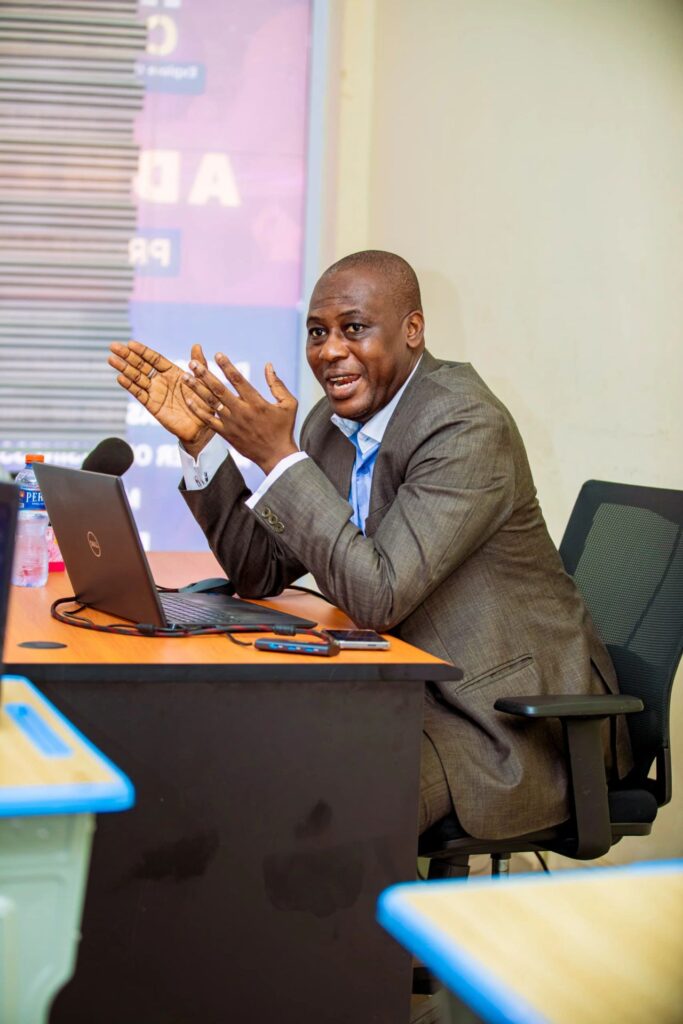
He described Artificial Intelligence as:
“Simulating human intelligence into machines that are programmed to act, think, and behave like human beings.”
Dr. Boison explained that AI is not about replacing humans but about enhancing their capabilities and extending their potential.
The Japanese Exception and Human Utilization of Brainpower
The speaker made a remarkable observation — research shows we barely use our brains’ full potential. According to him, it’s only the Japanese who have made the greatest use of their brains, and even then, it’s a mere 5% utilization. Dr. Boison suggested that Artificial Intelligence can help us maximize this potential and innovate in ways we hadn’t previously imagined.
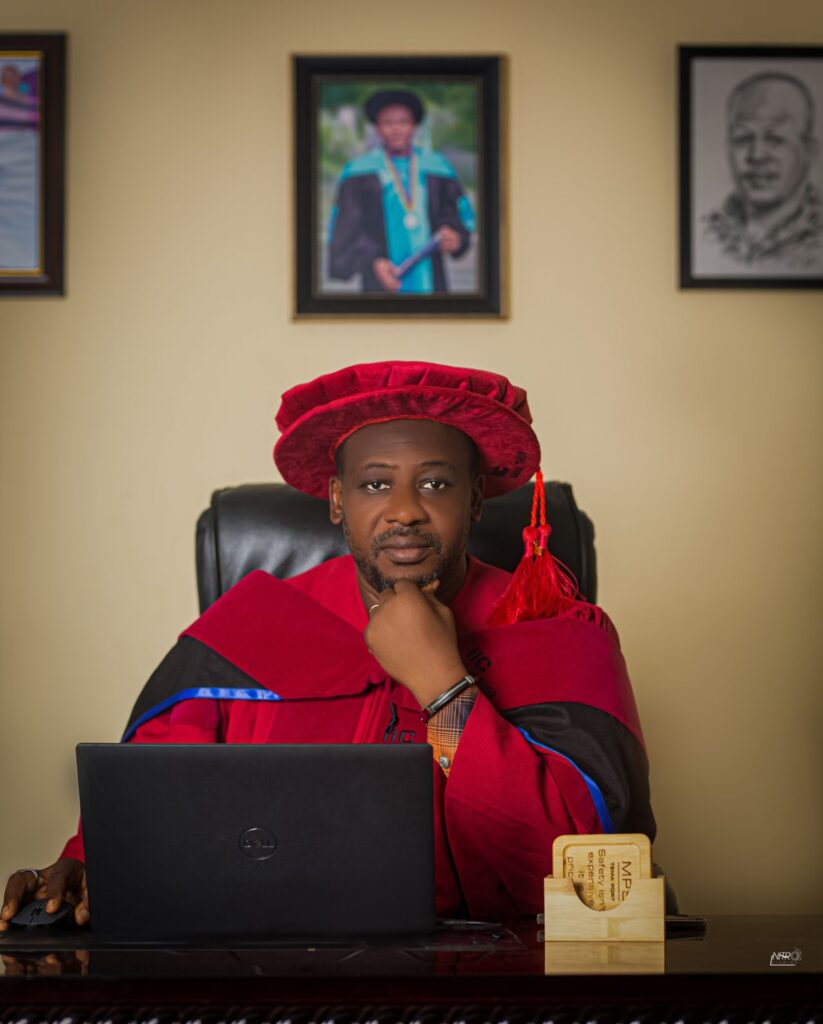
Leadership in the Age of Artificial Intelligence
He introduced a new formula for leadership today:
Leadership = Human Values + Artificial Intelligence
This highlights the necessity for a balanced blend of human judgment and machine-assisted decision making. AI augments, not replaces. It performs tasks faster and more accurately, freeing human leaders to focus on creativity, ethics, and interpersonal relationships — qualities machines cannot easily emulate.
Economic Impact and Market Trends
Dr. Boison backed his view with powerful statistics. The economic impact of the Artificial Intelligence market was valued at $207 billion in 2023, and it’s projected to grow to $1.85 trillion by 2030 — reflecting the scale at which industries are investing in and applying this technology.
Traditional Leadership vs Artificial Intelligence-Driven Leadership
Dr. Boison drew a clear contrast:
| Traditional Leadership | Artificial Intelligence-Driven | |
| Basis | Experience, intuition, human limitation | Data, Analytics, Predictive Modelling |
| Scope | Limited by time, resources, and geographic location | Fast, customized, and scalable |
| Role | Human performs all tasks | AI augments human capabilities |
The key takeaway here is that AI is not meant to undermine human roles but to empower and amplify human decision-making.
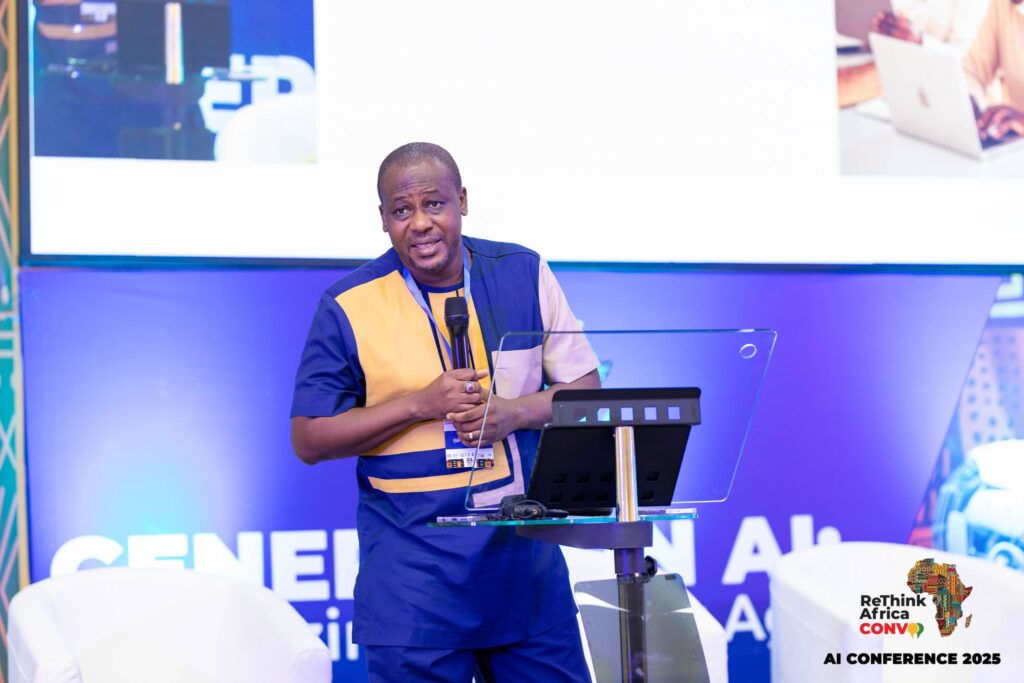
Dr. Boison provided rich, real-world cases of countries putting these principles into action:
United Arab Emirates (UAE):
Intentional and forward-thinking in its approach to technology, the UAE appointed a Minister of Artificial Intelligence — Omar Sultan Al Olama — to oversee its strategies.
AI has become the operating system of UAE’s future city development and service delivery.
United States of America (USA):
President Donald Trump passed an executive order to integrate Artificial Intelligence from Kindergarten through University education. Furthermore, the US Artificial Intelligence Education Act was implemented to raise the country’s overall AI literacy — for both teachers and students — and a national Artificial Intelligence Education Task Force was established to oversee and guide the implementation of Artificial Intelligence education across the country.
China:
China has long been a leader in Artificial Intelligence. Robots deliver packages directly to people’s doors in many Chinese cities, reflecting a sophisticated application of automation in daily life. Additionally, from September 2025, every student in China will study Artificial Intelligence at school — a policy designed to produce a generation proficient in the technology shaping their future.
Dr. Boison stressed that Artificial Intelligence is transforming every sector — education, agriculture, health care, finance, and more. As he put it: “Artificial Intelligence is not just a tool — it is the business of the day. The future will be led by those who understand and harness its power.” The episode underscores a key conclusion: Effective leadership in the Fourth Industrial Revolution will blend humanjudgment, values, and creativity with the power of Artificial Intelligence. Leaders who leverage this combination will drive innovation, competitiveness, and transformation across their organizations and industries.


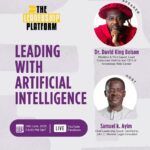
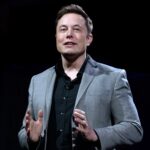



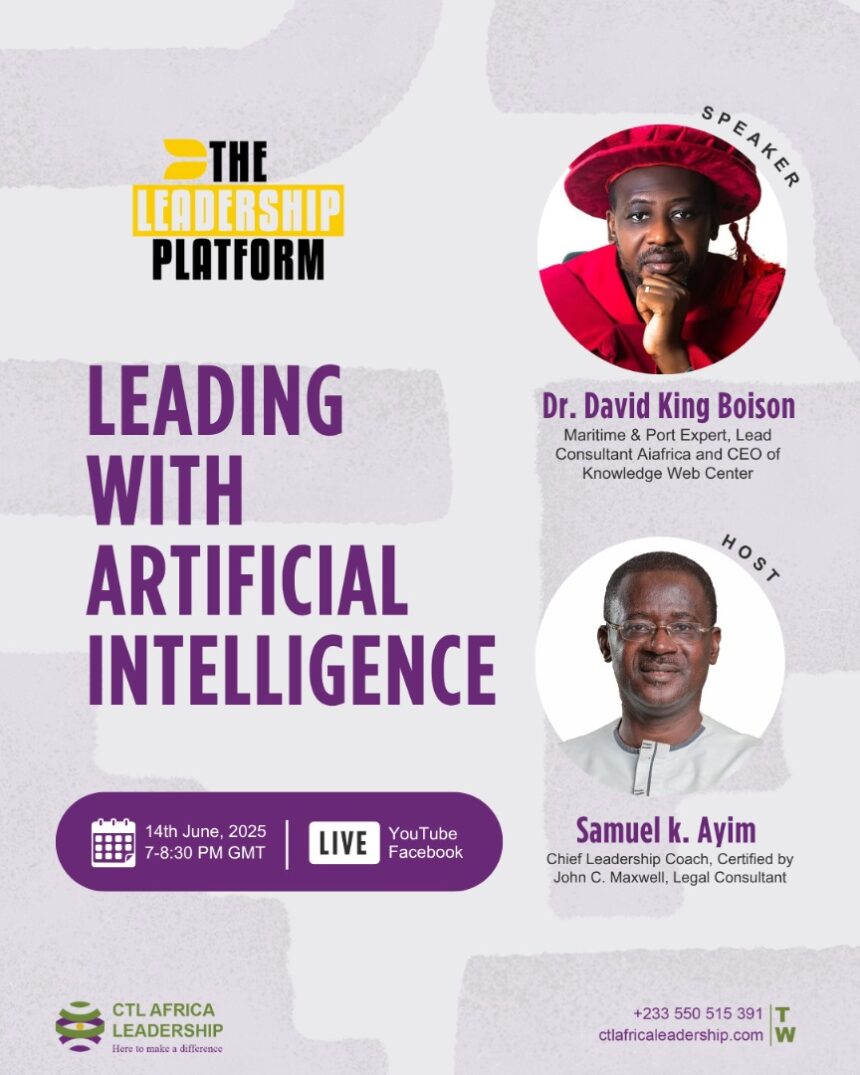
 /home/afripjzx/technewsglobal.net/wp-content/themes/foxiz/templates/popup.php on line 167
/home/afripjzx/technewsglobal.net/wp-content/themes/foxiz/templates/popup.php on line 167